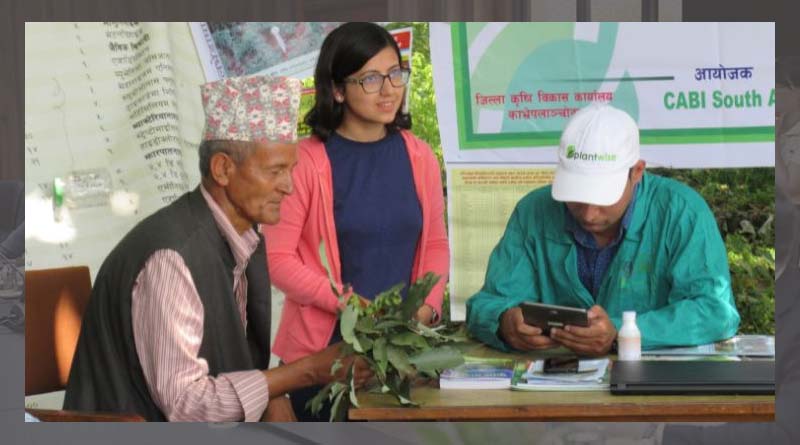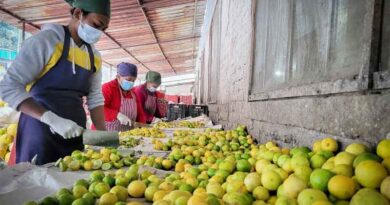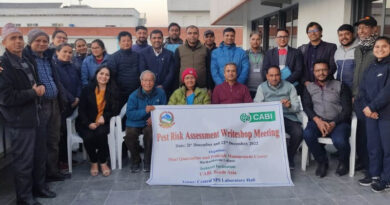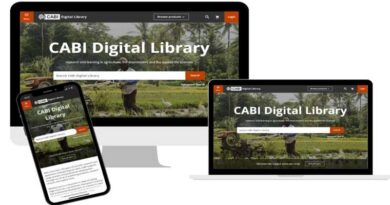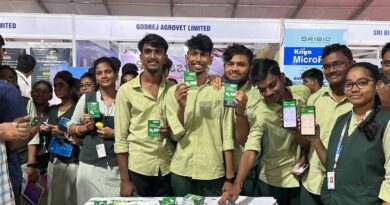Benefits of the PlantwisePlus digital tools presented in Nepal
15 May 2023, Nepal: CABI introduced the benefits of the PlantwisePlus digital tools and CABI Digital Library during a symposium in Nepal this April. Titled, “CABI Digital Library- A Suite of Tools for Plant Health System”, the event presented the tools and how they can help strengthen plant health systems.
The event was organized by the National Plant Pathology Research Center (NPPRC) – Nepal Agricultural Research Council (NARC) and held at Khumaltar, Lalitpur Nepal. More than 70 participants attended the event. Attendees included graduate students, early career researchers, and scientists.
CABI Digital Library
Dr. Vinod Pandit, Program Leader of CABI, South Asia gave the presentation and Dr. Ram B. Khadka, Scientist at NPPRC, hosted the event. Dr. Pandit spoke about the potential application of the CABI Digital Library in agriculture research, extension, and education in Nepal.
CABI is an international, inter-governmental, not-for-profit organization. The CABI Digital Library is an exciting new platform launched in 2022, which showcases all of CABI’s content in one convenient location. It simplifies how students, researchers, librarians, practitioners, and extension workers access the extensive collection of content.
CABI in Nepal
As well as an introduction to CDL, Dr. Pandit summarised the programmes CABI is implementing in Nepal and South Asia. This includes the global PlantwisePlus programme and its role in enabling pest management services through trained extension systems in Nepal.
To respond to the needs of farmers and the systems that support them, PlantwisePlus helps countries to predict, prevent, and prepare for plant health threats and reduce crop losses. This ensures not only do smallholder farmers produce more food, but they improve its quality. All in the face of a changing climate.
PlantwisePlus digital tools
PlantwisePlus delivers digital advisory tools that boost sustainable agriculture and improve the capacity of public and private actors who support smallholder farmers to diagnose crop health problems and recommend sustainable solutions. As part of the presentation, Dr. Pandit gave an overview of these tools, including the CABI Academy, CABI Bioprotection Portal, and PlantwisePlus Knowledge Bank. The participants learned how to use the different platforms and the information they contain for research, advisory, and new publications.
Mr. Basitha Acharya, Researcher at NPPRC was enthusiastic to learn about two tools in particular – the Fertilizer Optimizer and Crop Sprayer mobile apps. Both these tools, available free from Google Play, help with tricky calculations, which can be burdensome in field conditions.
Digital tools introduction
Distinguished guests at the talk session included Dr. Krishna Dev Joshi, Nepal Representative, International Rice Research Institute, Dr. Krishna Kumar Mishra, Chief of NARC-National Plant Breeding and Genetic Resource Center (NPBGRC), and Mr. Debraj Adhikari, Senior Plant Protection Officer of Government of Nepal-Plant Quarantine and Pest Management Center (PQPMC).
Dr. Joshi highlighted the importance of the capacity building of young and early career researchers on food and nutrition security in Nepal. Also discussed was IRRI’s Bionet Initiative, a membership-based program that allows private and public sector partners to leverage IRRI’s world-class research. This and other collaboration opportunities between stakeholders, including international organizations such as IRRI and CABI, are enhancing the capacity of agricultural researchers in Nepal.
Mr. Adhikari also presented at the event, explaining how the Department of Agriculture, in collaboration with CABI, has implemented the Plant Clinic program in Nepal over the last decade.
Digital tools for data collection
As a result of this work, the programme has collected a wealth of plant clinic data. This data is available through the Plantwise Online Management System (POMS).
This data is relevant to researchers looking at pest management in Nepal. Dr. Khadka requested CABI provide Plant Clinic training to researchers and academicians. In addition, the research community should have access to the data for Nepal, which is currently only accessible to extension agents.
NPBGRC Researcher, Dr. Ujjal Kumar Kushuhuwa, was grateful for the session. It provided an opportunity to learn more about the PlantwisePlus digital tools. In addition, it will allow farmers in Nepal to receive timely and accurate information and recommendations on pest management techniques from farmer advisors.
(For Latest Agriculture News & Updates, follow Krishak Jagat on Google News)

